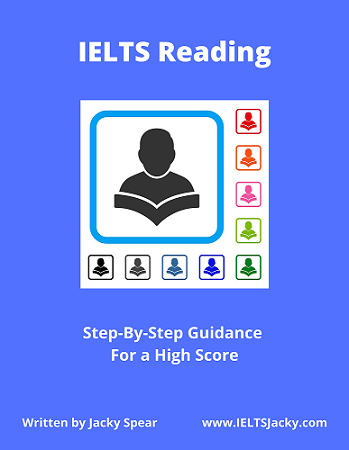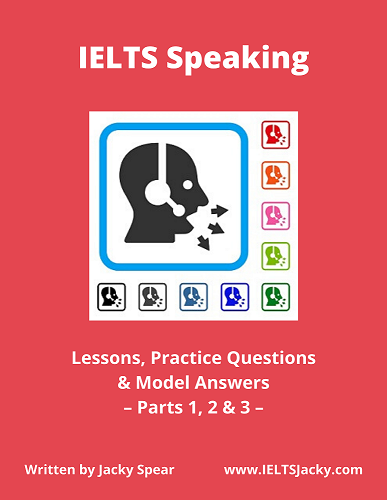IELTS Writing Tips
Here are my top 10 IELTS writing tips. They are relevant for both the Academic and General writing tests and will help you with Task 1 and Task 2.
1) Read the question & instructions carefully
One of the most common reasons for a low score in the writing test is not answering the question correctly. The cause of this is not fully understanding the question and the instructions.
The questions are not difficult to understand but you do need to study their structures and know how to analyse them.
These lessons will teach you everything you need to know:
Understanding Academic Task 1 Questions
Understanding General Task 1 Questions
Understanding Task 2 Questions
2) Plan your answer
The second of our IELTS writing tips is equally important. Always spend a few minutes planning your answer before you start writing.
There are 3 reasons for this:
|
If you plan your essay before you start writing, you will already know what you’re going to say and won’t need to keep stopping to think about the next idea. This means that you will be able to write much faster than if you don’t have a plan.
Planning also ensures that you include everything that the question requires so that you meet the marking criteria for task achievement which holds 25% of the marks.
Furthermore, it will give your answer a more organised structure which will gain you marks for coherence and cohesion. This marking criterion carries another 25% of the marks.
Learn how to plan in these lessons:
How To Plan an Academic Task 1 Essay
3) Know the answer structures
The great news is that you only need to learn two essay structures, one for Task 1 and the other for Task 2. These can be used for any question you might get. This is one of the most valuable IELTS writing tips I can give you.
Sometimes you will need to adapt them a little, but the same basic structure remains the same. However, they are easy to learn and with practice, you will soon be able to write high-scoring answers within the time limit allowed.
I cover essay structures on the planning pages and in the individual lessons on the different essay types. You’ll find them all here: IELTS Writing
For General Writing Task 1, study this lesson: IELTS Letter Structure
4) Understand the marking criteria
To get a high score in the IELTS writing exam, you need to know exactly what the examiner wants. So, an important step to achieving success is to understand the marking criteria.
Here are the 4 skill areas you’ll be assessed on:
|
Each carries 25% of the marks.
You can learn more about them in these lessons:
5) Be familiarized with the common topics
There are specific topics that come up regularly in each part of the writing test. If you practice answering questions on these subjects as part of your preparation, you will be well prepared for exam day.
You’ll find lessons on all these topics on the website along with many sample answers.
Start with these lessons:
The next few IELTS writing tips concern the detail of your answers.
6) Use synonyms & paraphrasing
You will need to use the key words from the questions in your answers. Where possible, use synonyms rather than just repeating the same words.
This is essential for achieving a high score for lexical resource (vocabulary) which counts for another 25% of the total marks. The examiner will not be impressed if you just use the same words over and over again.
You also need to know how to paraphrase, that is, say the same thing in different ways using different sentence structures and synonyms.
This isn’t just an IELTS writing tip, but applies to the Reading, Speaking and Listening sections of the exam as well.
Check out the vocabulary section of the website for help:
7) Write the correct number of words
Word count is something else to pay close attention to.
|
So that you don’t waste valuable time counting every word, work out the average number of words you write per line and multiply this by the number of lines in your answer. Practice doing this during your preparation and you'll soon be able to quickly and accurately estimate your word count.
If you write fewer words than required, you will lose marks for task achievement. However, you will not necessarily get a higher score for writing more than the minimum number of words. Marks are given for the quality of what you write, not the quantity.
When writing sample answers, I aim for around 160 to 180 words for Task 1 and 260 to 280 words for Task 2. This enables me to include all the information required without going off topic.
This leads us into the next of our IELTS writing tips.
8) Be specific
Every part of your answer should be directly relevant to the questions. The question will tell you exactly what to write about, so make sure that you stay on topic and don’t write about anything else.
For example, for a question about the impact of fossil fuels on global warming, write about this specific issue, not global warming in general.
9) Carefully manage your time
Here is the recommended time allocation:
|
Planning your answer before you start writing will help you to complete your essay or letter in the time allowed.
Important information – Task 2 contributes twice as many marks to your overall score as Task 1. For this reason, my advice is to do Task 2 first.
Most people do Task 1 first and overrun on the 20 minutes it should take them. This doesn’t leave them enough time to do Task 2 properly. Since Task 2 is worth double the marks, they are, in effect, throwing away valuable marks.
10) Check your answers
You’d be
amazed at how many candidates fail to check their answers and lose marks on
silly little mistakes that they would easily have spotted had they read through
their work.
I always find several mistakes in the sample answers I write despite English being my native language.
This is partly a time management issue as you need to leave a couple of minutes at the end to complete your check.
I have one final tip that relates to every item in my top 10 list of IELTS writing tips:
Practice, practice, practice
This is the only way to improve your skills and ensure a high mark.
Want to watch and listen to this lesson?
Click on this video.
More IELTS Writing Tips
Every page in the Writing section of the website is packed with IELTS writing tips. For a full menu of all the lessons and related videos, follow this link: IELTS Writing







